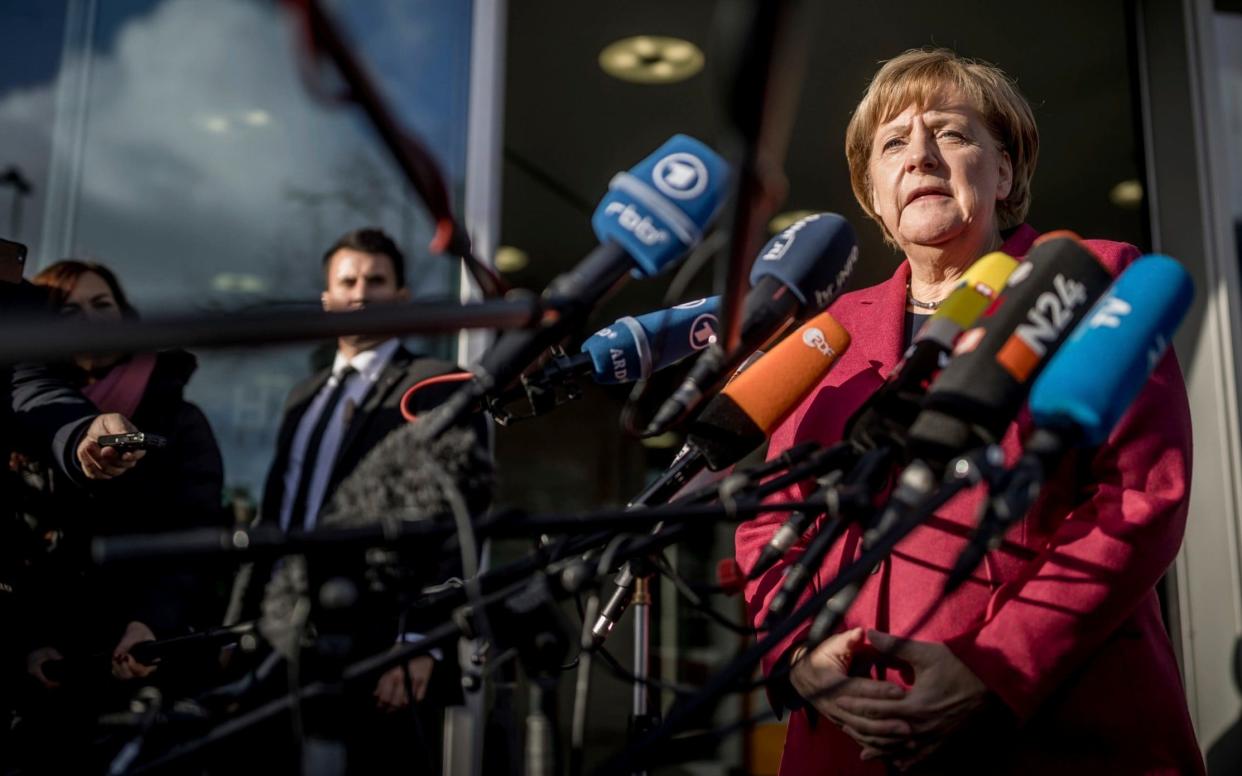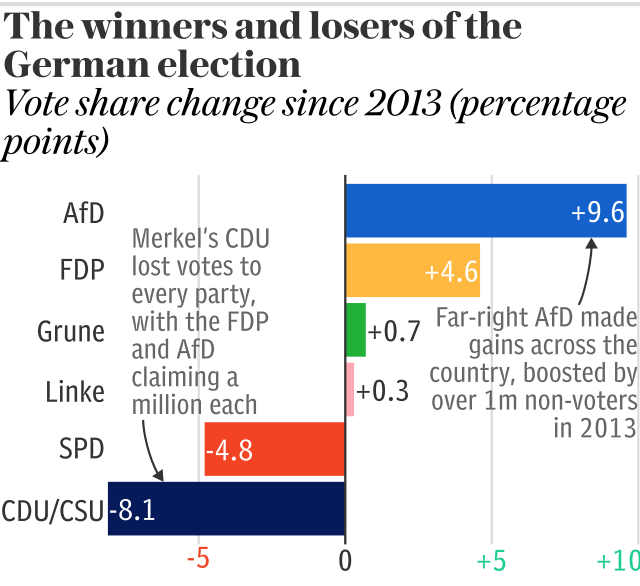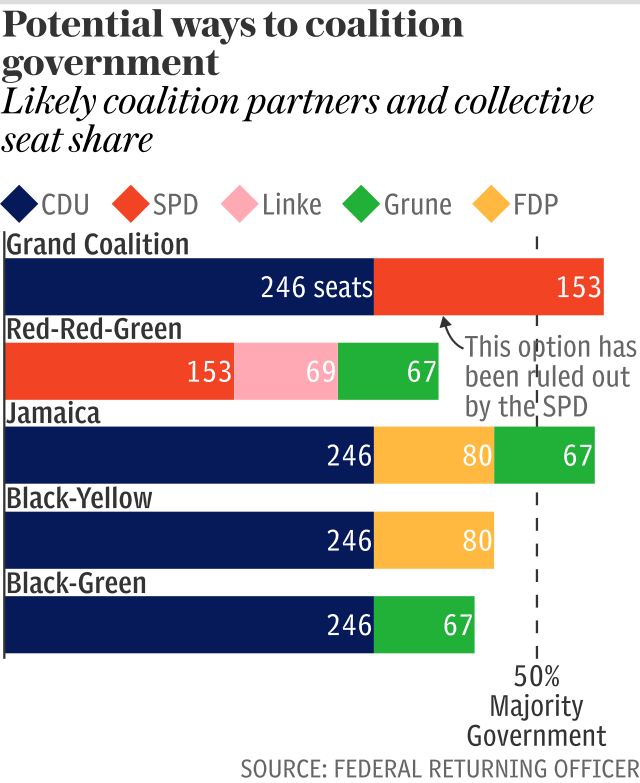Angela Merkel’s coalition hopes in doubt as talks extend through weekend

Angela Merkel’s political future was hanging in the balance on Friday as a coalition talks deadline passed without agreement on forming a new German government.
Talks have been extended and are now expected to last into the weekend after party leaders were unable to hammer out a deal on key issues including migrants.
If they cannot reach an agreement in the coming days, Germany could face new elections and Mrs Merkel’s future as chancellor will be in doubt.
Mrs Merkel had pledged to deliver a clear answer on whether she could form a new coalition by Friday morning.

Instead she emerged grim-faced after marathon overnight talks with a terse statement for waiting journalists: “Good morning. Today we are continuing.”
Negotiations had lasted 15 hours without agreement when party leaders agreed to call it a night and get some rest shortly after 4am local time.
Wolfgang Kubicki of the Free Democrat Party (FDP) summed up the frustration of negotiators. “We’ve been talking for four weeks and we’ve got nowhere,” he told journalists. “And now I have to go on TV and pretend everything’s great.”
Mrs Merkel is trying to build a new multi-party coalition with the FDP, the Greens and her Bavarian sister party, the Christian Social Union (CSU), following damaging losses in September’s election.
But she is struggling to find common ground between the three smaller parties, which are deeply opposed on issues ranging from migrants to the environment.

“It’s certainly not going to be easy, it’ll be tough, but it’s worth giving it a second round today,” she told journalists on Friday. “It’s no simple thing to bring everyone together. But the task of forming a government for Germany is so important that it’s worth the effort.”
The biggest issue of contention is family reunification for refugees, according to those close to the talks.
The Greens are demanding that those given temporary asylum because they are fleeing wars should be allowed to bring their relatives to join them in Germany. But the other parties are against the idea and the CSU in particular is refusing to give ground.
The parties have also clashed over CSU demands for an upper limit of 200,000 on the number of asylum-seekers allowed into Germany each year, and Green calls to close coal-fired power stations.

There were angry recriminations overnight after Green leaders briefed that a power struggle within the CSU was causing the breakdown in talks.
Mrs Merkel is to hold one-to-one meetings with other party leaders over the weekend in an effort to find agreement.
“We’re going into extra time,” said Cem Özdemir of the Green Party. “How long it all takes is up to the referee.”
His party colleague Katrin Göring-Eckardt was less optimistic. “It could still end up with no result,” she wrote on Twitter.
Yesterday morning’s deadline was self-imposed, and there is nothing to stop talks continuing if the parties agree.
But the delay has made clear that there are deeper divisions between the parties than mere posturing, and raised doubts over whether Mrs Merkel will be able to form a new coalition.

 Yahoo News
Yahoo News 
